From the Dean of College
Mr Jon Cullerton

From the Dean of College
Mr Jon Cullerton
Recently, Year 11 and 12 students attended an impactful seminar led by Paul Dillon, founder of Drug and Alcohol Research and Training Australia (DARTA). With nearly 30 years of experience in drug education, Paul is renowned for delivering engaging, evidence-based presentations that resonate with young audiences.
The sessions were tailored to address the specific challenges faced by senior students. For Year 11, the focus was on understanding the effects of alcohol and cannabis, emphasizing mental health implications and the importance of informed decision-making.
Year 12 students received guidance on navigating post-school life, including topics like drink driving, random breath testing, and strategies to stay safe during social events.
Paul's approach combines factual information with real-life scenarios, encouraging students to think critically about their choices and the potential consequences. He also introduced practical tools, such as the Emergency+ app and DARTA's Digital Cards, designed to assist young people in emergency situations related to substance use.
Feedback from students highlighted the seminar's effectiveness in providing relatable and actionable insights.
Sienna Butcher and Charlotte McCormack (Year 12) – “The session was really informative and made us think about the risks involved in a way we hadn’t considered. There is so much misinformation out there and Paul’s presentation really cut through to the facts.”
For more resources and information on drug and alcohol education, visit DARTA's official website.
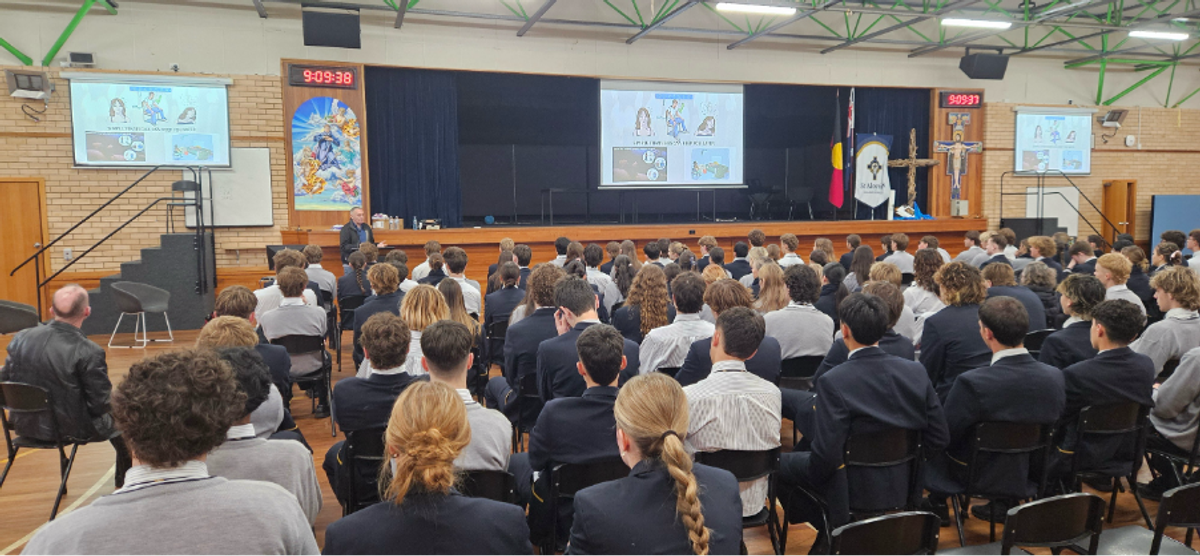
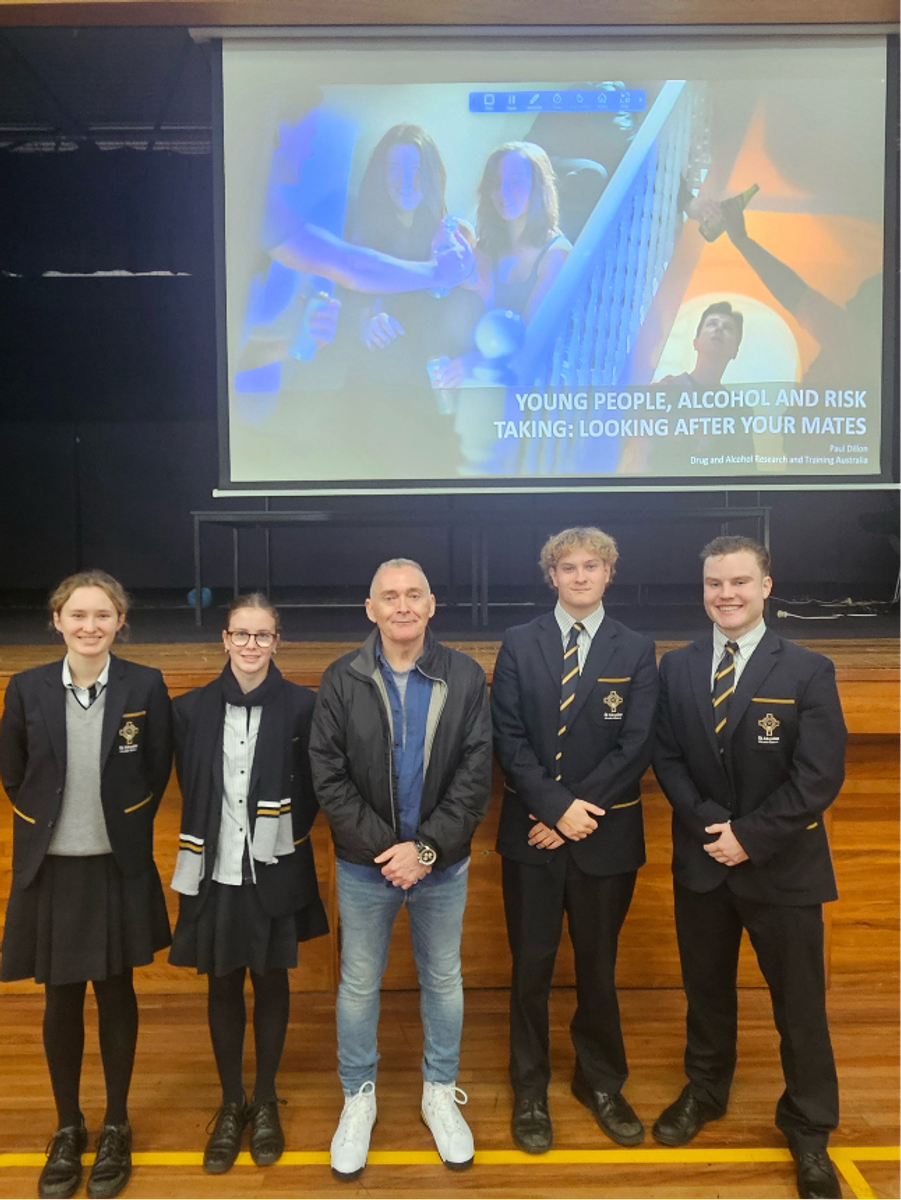


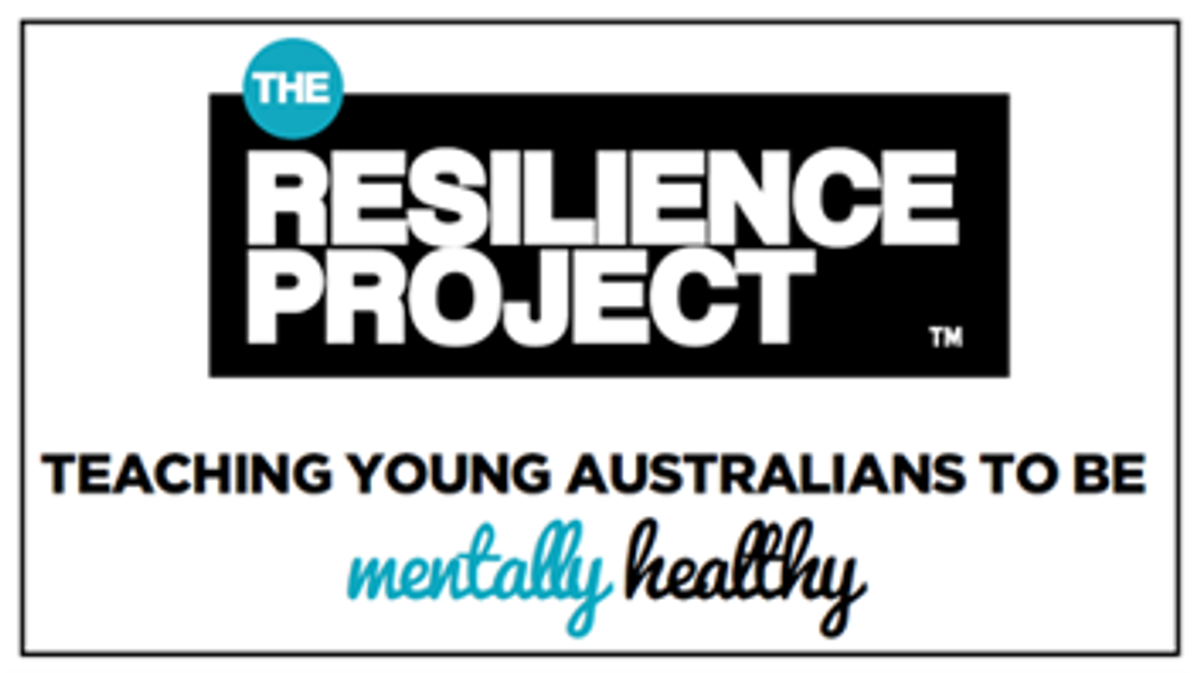

I would like to draw the community’s attention to a recent academic study published by Monash University in Victoria - see link. This has been a longitudinal study conducted into the lives of young people and how deliberate mental health education can improve their lives. The university conducted research into the lives of 40,000 Australian students (both primary and secondary) who were engaged with the Resilience Project through their schools. The study thoroughly endorsed the program with amazing results reported for young people with a dramatic reduction in the rates of anxiety and depression as well as improved outlook on life and life satisfaction.
Our own College results over the past three years really reflect these recent findings. Over the past three years through the Resilience Project our school has participated in the Resilient Youth Survey, which is the largest youth survey in Australia. Over these three years we can see improved outcomes for our students in the realm of mental health with students reporting feeling more hopeful, less anxious and less depressed in their daily lives. Below are snapshots of the last three year’s results presented in scatter graph format as as you can see there has been some impressive results - remembering these are provided by our students anonymously and without interference from anyone.
2023 (Years 11 and 12) Results
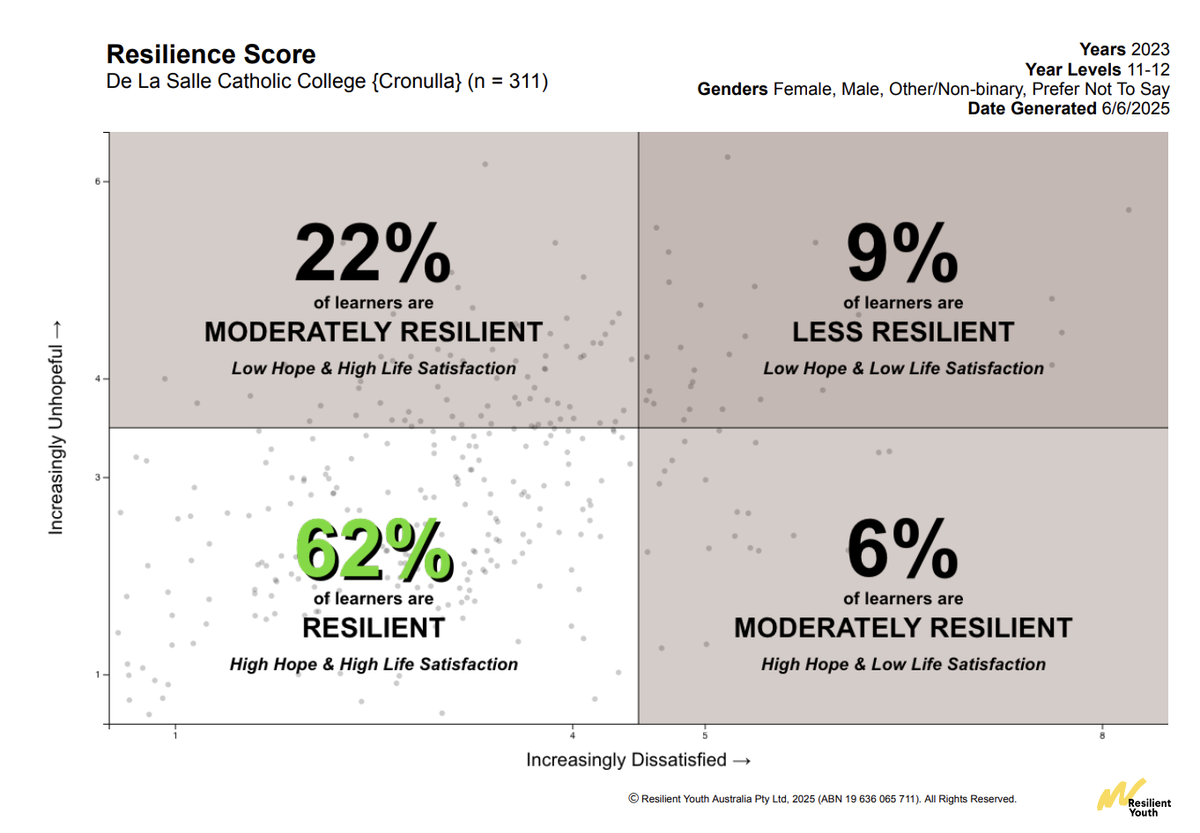

2024 (Years 7, 11 and 12) Results
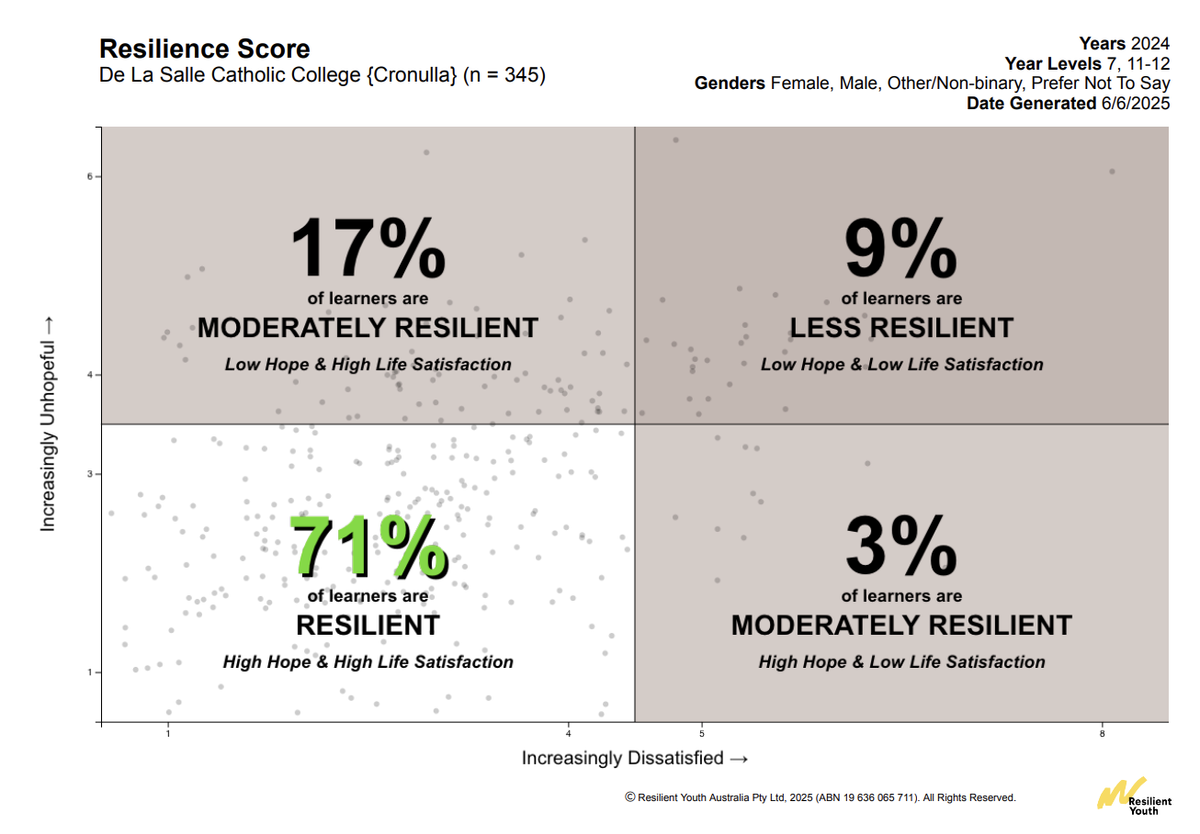

2025 (Years 7, 8, 11 and 12) Results
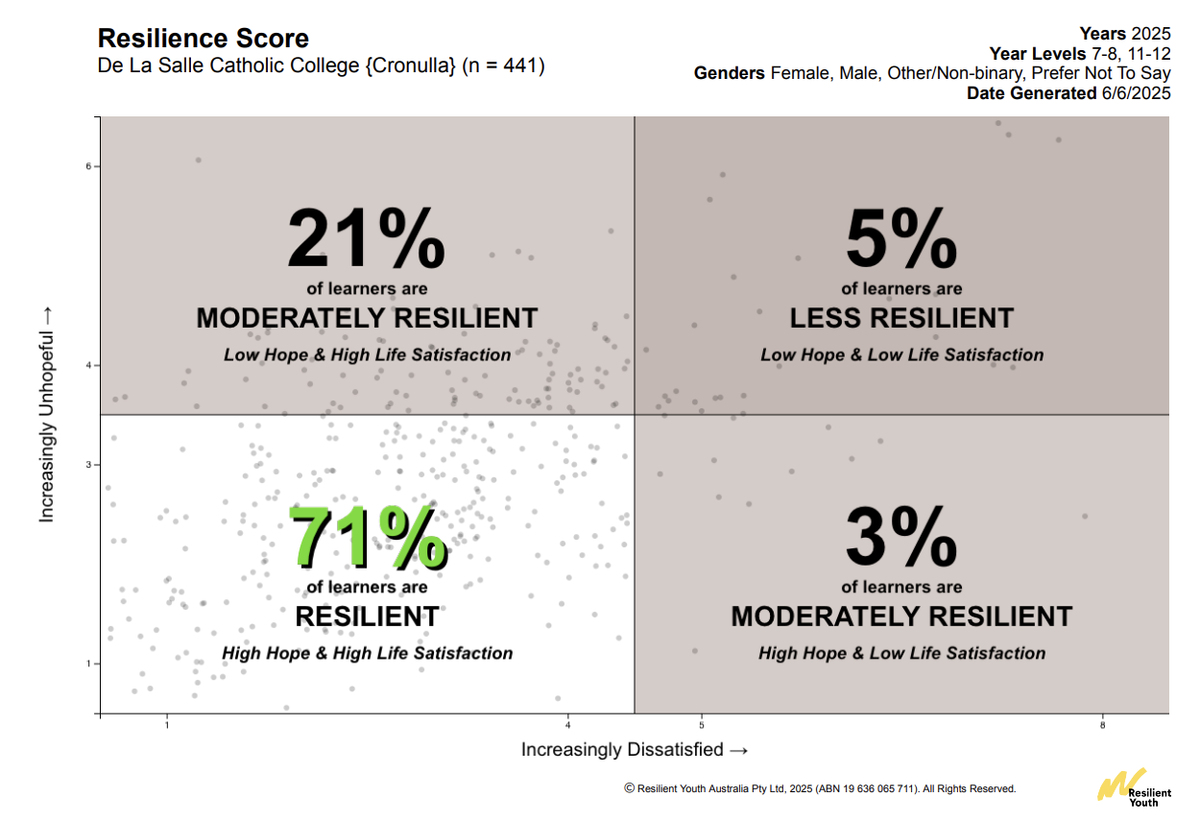

Over the coming weeks I will present some more in depth findings from the report.
For more information on the overall report from Monash University and its findings please see this link
Mobile phones must not be used during the school day and must remain switched off and out of sight at all times on College grounds. This includes before school during morning supervision and throughout the entire school day. The only exceptions to this rule are:
Additional Guidelines:
These procedures are designed to ensure mobile phones do not interfere with learning and to encourage meaningful, device-free social interactions during the school day.
Parent-teacher interviews play a vital role in supporting a student’s academic and personal development. They provide a valuable opportunity for open communication between parents and teachers, allowing both parties to share insights about a student’s progress, strengths, and areas for growth.
These meetings help build a strong partnership focused on the student’s wellbeing and success, ensuring that any challenges can be identified early and addressed collaboratively. By working together, parents and teachers can create consistent strategies that reinforce learning and support at home and in the classroom.
Ultimately, parent-teacher interviews are a vital part of your daughters or son’s educational journey and ensure that learning both at school and at home is maximised. We therefore encourage all our families to attend these opportunities, however, we do understand that it is not always possible due to illness and other commitments.
If you were unable to attend the recent parent teacher interviews we encourage you to either email your child’s teachers to organise a suitable time for a phone consultation or contact the front office who can pass on your request to your child’s teachers.
Our Stage 4 (years 7 and 8) parent teacher interviews are scheduled for the following dates:
Thursday, 3 July (week 10) 3pm-6:30pm
Friday, 4 July (week 10) 9am - 3pm (please note this will be a pupil free day for all students except for any year 11 students who have a scheduled assessment this day)